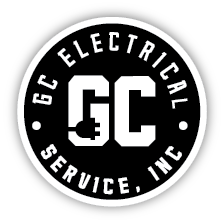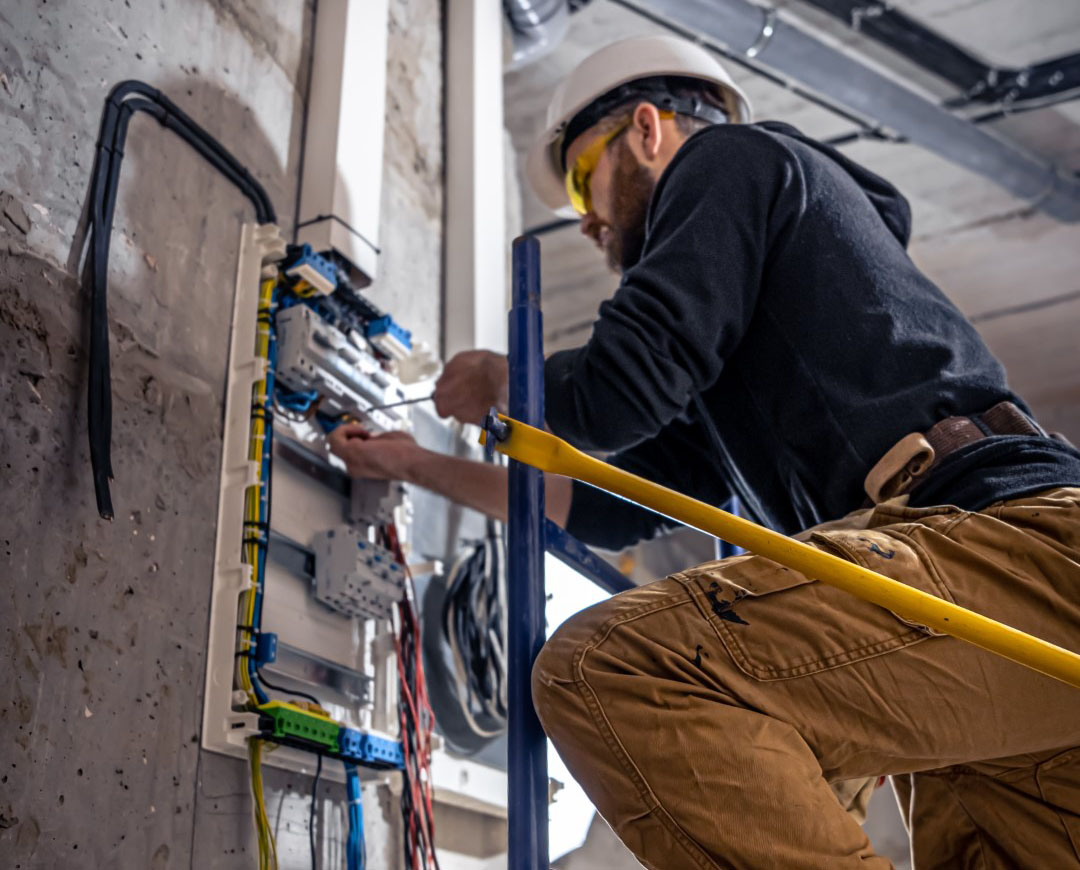Choosing the right contractor is imperative for electrical work in your home or business. Electrical systems are complex and require high expertise, precision, and safety measures. The right electrical contractor can ensure your project is completed on time, within budget, and to the highest safety and quality standards.
This blog discusses considerations when selecting an electrical contractor, from verifying credentials to assessing experience and evaluating customer feedback. By the end of this blog, you'll clearly understand what to look for in an electrical contractor and how to make an informed decision.
Understanding Your Electrical Needs
Before you search for an electrical contractor, clearly define your project's scope, whether for a residential or commercial property, new construction, renovation, or a minor repair. The nature of the work will determine the type of contractor you need.
Residential vs. Commercial Electrical Work
Residential and commercial electrical projects differ significantly in complexity and scale. Residential work often involves wiring for homes, installing lighting fixtures, and upgrading electrical panels. On the other hand, commercial work can include large-scale wiring systems, complex lighting installations, and electrical maintenance for businesses or industrial facilities. Choose a contractor specializing in the type of work you need.
Assessing the Scope of the Project
Understanding the specifics of your project will help you communicate your needs effectively to potential contractors. Consider the following:
-
- Project Size: Is it a small repair, like fixing a faulty outlet, or a large project, like rewiring an entire building?
- Timing: Do you have a tight deadline, or is the schedule flexible?
- Budget: What is your budget range for the project?
Verifying Credentials and Licensing
Verifying their credentials is one of the most critical steps in choosing an electrical contractor. Electrical work is highly regulated, and working with an unlicensed contractor can lead to safety hazards and legal issues.
Licensing Requirements
In most regions, electrical contractors must hold a valid license to operate. This license ensures that the contractor has the necessary training, experience, and knowledge to perform electrical work safely and effectively. Ask potential contractors to provide their license number and verify it with your local licensing authority.
Insurance Coverage
Electrical work can be risky, and accidents can happen even with the most experienced contractors. That's why choosing a contractor with adequate insurance coverage is crucial. This coverage should include:
-
- Liability Insurance: This covers damage to your property caused by the contractor's work.
- Worker's Compensation Insurance: Protects you from liability if a worker is injured on your property.
Evaluating Experience and Expertise
Experience matters in electrical work. A contractor with years of experience is more likely to have encountered various electrical issues and developed effective solutions. Here's how to evaluate a contractor's experience and expertise:
Years in Business
While a newer company may offer competitive pricing, a contractor with a long track record in the industry is often a safer bet. Longevity in business typically indicates that the contractor has satisfied customers and completed numerous projects.
Specialization
Electrical work can encompass many areas, including residential wiring, commercial installations, industrial electrical systems, and other potential areas based on the contractor's experience. Ask contractors about their areas of specialization and whether they've completed similar projects to yours. For example, if you need a complex lighting system installed in a commercial space, you'll want a contractor with specific experience in commercial lighting installations.
Ongoing Training and Certifications
The electrical industry constantly evolves, with new technologies and safety standards emerging regularly. A reputable contractor should stay updated with industry developments through ongoing training and certifications. Ask about any additional certifications or training the contractor or their team has completed, such as energy-efficient systems or smart home technology certifications.
Checking References and Reviews
One of the best ways to gauge the reliability and quality of a contractor's work is to check references and read reviews from past clients.
Ask for References
A reputable contractor should be willing to provide references from previous clients. When contacting references, ask about their overall experience with the contractor, the quality of the work, adherence to deadlines, and how any issues were resolved. Here are some specific questions you might ask:
-
- Was the project completed on time and within budget?
- How was the communication throughout the project?
- Were there any unexpected issues, and how were they handled?
- Would you hire this contractor again?
Online Reviews and Ratings
In addition to direct references, check online reviews on platforms like Google, Yelp, or the Better Business Bureau. Look for patterns in the feedback—consistent praise or complaints can provide valuable insights into the contractor's reliability and work quality.
Social Media and Portfolio
Many contractors showcase their work on social media or through an online portfolio. Reviewing these can give you a sense of their craftsmanship and the types of projects they've completed. Pay attention to the quality of the work and whether it aligns with what you're looking for in your project.
Assessing Communication and Professionalism
Effective communication is key to a successful project. You want to work with a responsive, transparent, and professional contractor from the initial consultation to the final walk-through.

Initial Consultation
Your first interaction with contractors can tell you a lot about their professionalism. Pay attention to how they handle your inquiry—are they prompt in responding, courteous, and willing to answer your questions? The initial consultation should be thorough, with the contractor taking the time to understand your needs and provide a detailed estimate.
Clear and Detailed Estimates
A reputable contractor should provide a clear, detailed estimate that outlines the scope of work, materials needed, labor costs, and a timeline for completion. Be wary of vague estimates or contractors who pressure you into making a quick decision.
Communication Throughout the Project
Once the project begins, regular updates and open communication are essential. The contractor should inform you of any changes or unexpected issues and provide solutions that fit within your budget and timeline. A contractor who is difficult to reach or fails to communicate can lead to misunderstandings and delays.
Understanding Pricing and Payment Terms
While price is important, it shouldn't be the sole determinant in choosing an electrical contractor. It's essential to understand what you're paying for and ensure the pricing is transparent and fair.
Comparing Quotes
When comparing quotes from different contractors, make sure you're comparing apples to apples. Look beyond the bottom line and consider what's included in the quote:
-
- Materials: Are high-quality materials being used?
- Labor: Does the quote include all necessary labor, or are there additional charges for overtime or special tasks?
- Permits and Inspections: Are permits and inspections included in the price, or will you need to arrange and pay for these separately?
Beware of Low Bids
A significantly lower bid might seem attractive, but it could be a red flag. Low bids often result from cutting corners, using subpar materials, or omitting necessary work. Investing in quality upfront is better than facing costly repairs or safety issues down the line.
Payment Terms
Understand the payment terms before signing a contract. A typical payment schedule might involve a deposit upfront and installments based on project milestones. Avoid contractors who demand full payment upfront or pressure you into a payment plan you're uncomfortable with.
Ensuring Compliance With Local Codes and Regulations
Electrical work must comply with local building codes and safety regulations. Working with a contractor who understands and adheres to these regulations is crucial to ensuring the safety and legality of your project.
Permits and Inspections
Most electrical projects require permits and inspections from your local building authority. A reputable contractor will know the permitting process and obtain all necessary permits before work begins. They should also coordinate with inspectors to ensure the work meets all code requirements.
Understanding Local Codes
Building codes vary by location, and staying compliant is critical to avoiding fines, delays, or safety hazards. A knowledgeable contractor will be familiar with the local codes and ensure all work is performed to code.
Safety Standards
In addition to building codes, electrical work must adhere to strict safety standards to prevent hazards like electrical fires, shocks, and short circuits. The contractor should follow best practices for safety, such as using proper wiring techniques, installing circuit breakers, and grounding electrical systems.
Considering Warranties and Guarantees
Warranties and guarantees provide peace of mind and protection if something goes wrong after completing the project.
Workmanship Warranty
A workmanship warranty covers any defects in the contractor's work. For example, if an electrical outlet they installed fails after the project is completed, the contractor should repair it at no additional cost. Understand the warranty terms, including the duration and what is covered.
Manufacturer's Warranty
In addition to the workmanship warranty, materials used in your project may come with a manufacturer's warranty. This warranty covers product material defects, such as faulty wiring or a malfunctioning circuit breaker. Ensure you receive copies of any manufacturer's warranties for materials used in your project.
Finalizing the Contract
Once you've chosen a contractor, it's time to finalize the contract. The contract should be detailed and clearly outline the scope of work, materials, timeline, payment terms, and warranties.

Reviewing the Contract
Take the time to review the contract thoroughly before signing. Ensure that all verbal agreements are included in writing and that you understand every aspect of the contract. If there's anything unclear, don't hesitate to ask for clarification.
Change Orders
Understand how changes to the project are handled. Sometimes, unexpected issues arise that require adjustments to the original plan. The contract should outline how these changes will be communicated, approved, and billed.
Termination Clause
The contract should include a termination clause that outlines the conditions under which either party can terminate the agreement. This clause is important if the contractor fails to meet deadlines, doesn't adhere to the agreed-upon standards, or decides to cancel the project.
Choosing the Electrical Contractor for Your Project
Choosing the right electrical contractor for your home or business requires careful consideration of many factors, from credentials and experience to communication and pricing. By following the steps outlined in this guide, you can confidently select a contractor who will deliver high-quality work, adhere to safety standards, and ensure the success of your project.
Remember, the cheapest option isn't always the best, and investing in a qualified, experienced contractor will pay off in the long run. Choosing the right contractor will give you peace of mind and a safe, reliable electrical system, whether you're embarking on a major renovation or need a few repairs. Take the time to research, ask the right questions, and make an informed decision. Your home or business's safety, functionality, and value depend on it.
Visit our GC Electrical Service Inc. blog for additional insights and tips on choosing the right electrical contractor. Stay informed and make the best decisions for your home or business!


